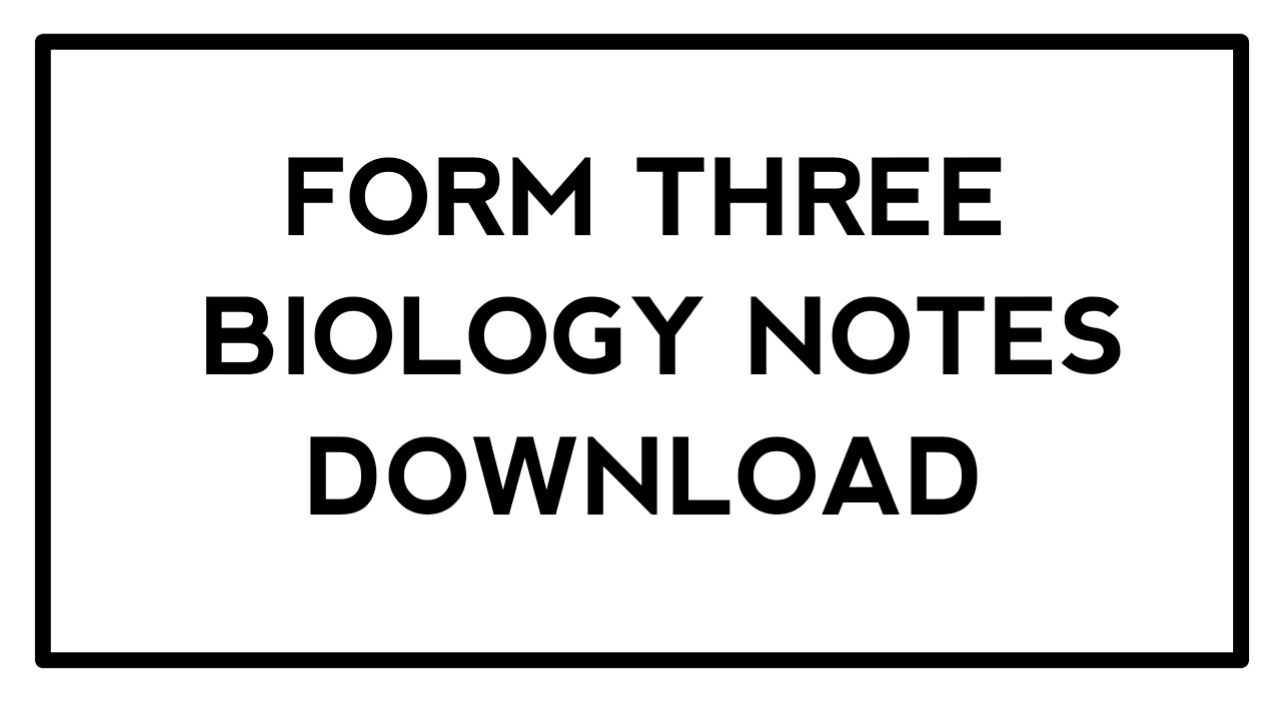Biology is a fascinating field that delves into the study of life and living organisms. For students in Form Three, Biology is not just a subject but a gateway to understanding the complex and intricate workings of the natural world.
DOWNLOAD HERE FORM THREE BIOLOGY NOTES
Key Concepts in Form Three Biology
Form Three Biology typically covers a range of fundamental topics that lay the groundwork for more advanced studies in the future. Here’s a rundown of the key concepts you’ll encounter:
1. Cell Biology
Understanding cells is foundational to Biology. In Form Three, you’ll explore:
- Cell Structure and Function: Learn about the different parts of a cell (nucleus, mitochondria, cell membrane, etc.) and their roles.
- Cell Division: Study mitosis and meiosis, the processes by which cells divide and reproduce.
- Cell Specialization: Understand how cells differentiate to perform specific functions within multicellular organisms.
Study Tip: Use diagrams and models to visualize cell structures and processes. Creating flashcards with key terms can also help reinforce your knowledge.
2. Genetics
Genetics introduces you to the science of heredity and variation. Key topics include:
- DNA and Genes: Understand the structure of DNA and how genes carry genetic information.
- Inheritance Patterns: Study Mendelian genetics and learn how traits are inherited through generations.
- Genetic Mutations: Explore how changes in DNA can lead to variations and potential disorders.
Study Tip: Practice solving genetics problems and pedigree charts to grasp inheritance patterns. Online simulations and interactive tools can also make complex concepts more accessible.
3. Human Anatomy and Physiology
This section focuses on the human body and its functions. Key areas include:
- Organ Systems: Learn about the major organ systems (circulatory, respiratory, digestive, etc.) and their functions.
- Homeostasis: Study how the body maintains a stable internal environment despite external changes.
- Nutrition and Health: Understand the importance of a balanced diet and its impact on overall health.
Study Tip: Use anatomy apps or models to study the human body. Creating summary charts for each organ system can help you remember their functions and interactions.
4. Ecology
Ecology examines the relationships between organisms and their environments. Key concepts include:
- Ecosystems: Understand how biotic (living) and abiotic (non-living) factors interact in an ecosystem.
- Food Chains and Webs: Study how energy flows through different trophic levels.
- Environmental Conservation: Explore issues related to conservation and the impact of human activities on ecosystems.
Study Tip: Engage with real-world examples and case studies to understand ecological concepts. Field trips or virtual tours of different ecosystems can also provide practical insights.
Study Tips for Success
Mastering Form Three Biology requires effective study strategies and a solid understanding of the material. Here are some tips to help you succeed:
- Organize Your Notes: Keep your notes well-organized by topic. Use headings, bullet points, and diagrams to make information easy to review.
- Active Learning: Engage in active learning techniques such as summarizing information in your own words, teaching concepts to someone else, or discussing topics with classmates.
- Practice Questions: Regularly practice past exam questions and quizzes to test your understanding and identify areas where you need more review.
- Use Visual Aids: Diagrams, charts, and videos can help you grasp complex concepts. Visual aids are particularly useful for subjects like cell biology and anatomy.
- Stay Curious: Biology is a subject that benefits from curiosity and exploration. Try to connect what you learn in class with real-world examples and current scientific advancements.
Form Three Biology is an exciting and essential part of your education, offering a glimpse into the diverse and intricate world of living organisms. By focusing on key concepts such as cell biology, genetics, human anatomy, and ecology, and applying effective study strategies, you can build a strong foundation for future studies in biology and beyond.
